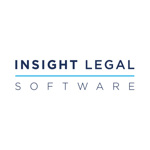Is your IT system a cybersecurity risk?
According to the Cyber Security Breaches Survey 2019, 32% of businesses identified cybersecurity breaches or attacks within the last 12 months. In the digital world, cybersecurity breaches can occur for a variety of reasons, from insecure passwords to not having the correct firewall or system configurations in place. The legal sector is not exempt and it is important to acknowledge why this is occurring, how to prevent it and the reasons why firms can be susceptible to potentially company-ending breaches.
Legacy IT systems can date back decades and pose significant business risks when they don’t receive the upgrading needed to accommodate more sophisticated security measures. With legacy systems still deeply ingrained in many law firms, outdated software could leave firms highly susceptible to malicious online activity, which can in turn cause potential damage much faster than systems could be updated.
Today, further changes which could threaten the security of a legal firm’s IT systems are very much on the horizon. As of next January, Windows will discontinue its Windows 7 support, meaning that the technical assistance and software updates which help firms protect their computers will no longer be available for anyone running their programs on the system.
For law firms, changes like this can have a huge impact on their vulnerability to a data breach caused by an event of hacking, malware and viruses. In terms of compliance, this can leave law firms in breach of regulations such as the GDPR, and at high risk of facing a crippling fine. Cybersecurity flaws can also tarnish the firm’s reputation, due to the impact that a data breach could have on customer information. This could lead to customers losing trust in the firm, in turn resulting in a loss of both existing and potential customers and revenue.
If modern firms choose to operate in the cloud, their data will be held within a host platform such as Microsoft Azure. Making this transition poses cybersecurity considerations of its own. When selecting a cloud service, it is important that firms check whether the provider will offer continuous security-health monitoring.
Despite the ever-growing cybersecurity risks modern businesses face, law firms can take action to protect their data from being susceptible to hackers or malware issues. It is vital not to forget the importance of keeping software up to date and having a firewall to back up and protect both personal and private data on behalf of the firm and its clients. Working with legal IT suppliers who have the necessary provisions, expertise and support network in place can be a huge asset when keeping a firm’s data secure within their systems.
Implementing these safeguards proactively within a firm could ultimately be the difference in being fully prepared if a security breach takes place, or suffering financial and operational consequences which could potentially harm a firm’s viability.
Regulars
Perspectives
Features
Briefings
- Corporate transparency and register reform
- Can we do it this way?
- Positive news, times two
- Sorted: the Planning Bill
- Debtor discharge: the letter of the law
- Structures allowance draft builds in improvements
- Age of the asylum seeker
- Scottish and English conveyancing: are the two compatible?
- Change? The basics still count







